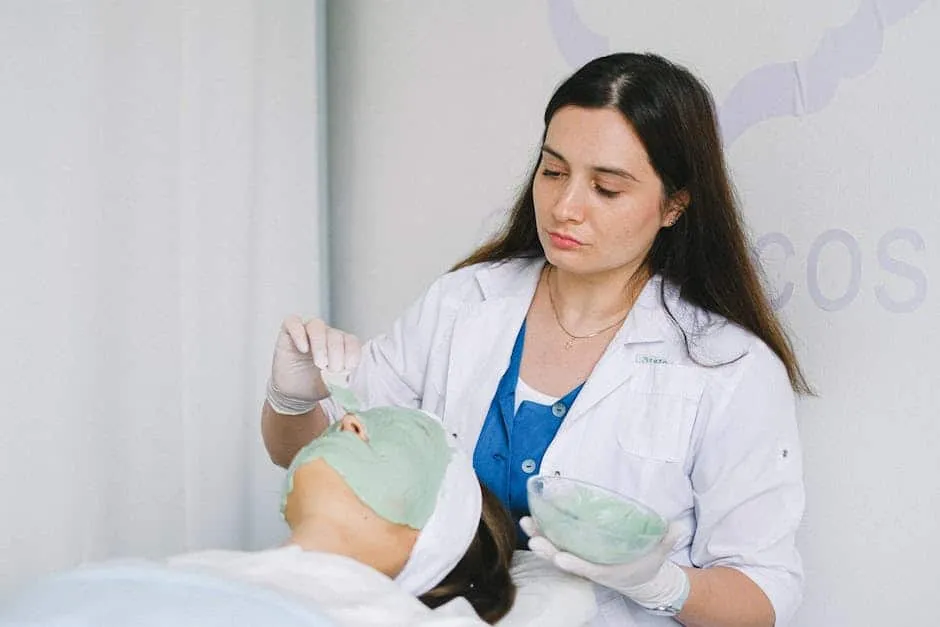A skilled surgeon is dedicated to patient safety, technical expertise, and achieving individualized aesthetic results. The right professional provides clear explanations and delivers outcomes that enhance natural features. Recognizing these qualities helps patients make informed decisions that align with their plastic surgery preferences and comfort levels. The key to ideal surgical outcomes is choosing a suitable surgeon, and here’s how to identify one:
Evaluate Surgical Experience and Certification
Some plastic surgeons are board-certified, indicating they have completed specialized training and passed rigorous examinations. Certification reflects advancements in education and knowledge of aesthetic and reconstructive procedures. Look for professionals who are certified by the American Board of Plastic Surgery (ABPS). This organization sets high standards for training, ethics, and patient care.
Beyond credentials, practical experience across a wide range of surgeries adds value. Experienced surgeons can perform procedures such as breast enhancement, facelifts, and liposuction with consistently high-quality results. Some surgeons specialize in reconstructive surgery, including breast reconstruction or skin cancer removal with attention to cosmetic outcomes. A provider who demonstrates both technical expertise and experience in performing specific procedures with precision helps improve surgical results. Patients can benefit from professionals who regularly perform the procedure they are contemplating.
Assess Customized Procedures
Surgeons who offer a wide range of services may demonstrate versatility and a deeper understanding of patient needs. Aesthetic breast procedures include augmentation, lifts, and reductions. Each one addresses different cosmetic and medical concerns, from enhancing volume and shape to alleviating discomfort caused by overly large breasts. Facial surgeries, such as facelifts, eyelid lifts, and neck contouring, aim to create a youthful and balanced appearance. Body contouring procedures like tummy tucks and liposuction help smooth body shape after weight changes or pregnancy.
Some specialists also provide medical-grade skincare options to complement surgical procedures and maintain firm, wrinkle-free skin. Non-surgical treatments, including Botox and fillers, require a thorough understanding of facial anatomy and precise aesthetic application. Some procedures may also be combined to provide more drastic enhancements. This includes incorporating a facelift with eyelid surgery for a comprehensive facial rejuvenation. Offering a range of customizable services can increase a surgeon’s ability to meet diverse patient needs, and it enables them to provide balanced, natural-looking results.
Prioritize Effective Communication and Consultations
The consultation process reveals how well a surgeon communicates and whether they are patient-focused. A good surgeon listens carefully, asks relevant questions, and provides recommendations tailored to individual goals. They explain plastic surgery procedures in clear terms, including what to expect and the recovery process.
Patients should be fully involved in decisions about their care. When surgeons answer questions thoroughly and offer visual references, it shows professionalism and a focus on patient education. A well-conducted consultation fosters clarity, comfort, and shared understanding between surgeon and patient. It also builds transparency. Effective consultations make sure both parties are aligned on goals, expectations, and outcomes. This transparency can help reduce misunderstandings and improve overall satisfaction.
Verify Postoperative Care and Facility Safety
Undergoing surgery in certified hospitals or clinics promotes adherence to established standards of health, safety, and ethics. Accredited facilities should maintain proper hygiene and offer appropriate monitoring. They should also employ licensed staff to support patient care. The quality of postoperative care is just as key as the surgery itself for recovery and overall satisfaction. Surgeons who provide clear instructions and conduct regular follow-ups show a sustained commitment to patient outcomes.
Accessible care teams during recovery help make it easier to address questions and concerns promptly. This level of follow-up reassures patients that support extends beyond the operating room. A combination of safe surgical practices and comprehensive aftercare reflects a strong commitment to both health and results.
Schedule a Plastic Surgery Consultation
Finding a qualified plastic surgeon involves reviewing their credentials and titles. Effective surgeons combine experience, clear communication, and a range of services tailored to patient needs. They offer thorough consultations and work in safe facilities. High-quality surgeons also provide consistent follow-up care, reflecting a strong commitment to patient well-being. Their experience and surgical precision contribute to successful outcomes. Taking the time to research and meet with the right provider helps patients make informed decisions at every step. Schedule a consultation with a surgeon who aligns with your goals and approach to care today.
- Pedrovazpaulo Wealth Investment: Unlocking Financial Freedom Through Innovative Strategies
- EO Pis: A Comprehensive Guide to Environmental Objectives and Performance Indicators
- Premiumindo69: The Future of Digital Entertainment
- Macadamia Nut Milk: Health Benefits, Recipes, and Why It’s the Perfect Dairy-Free Alternative
- Hentquz: The Future of Productivity and Collaboration


